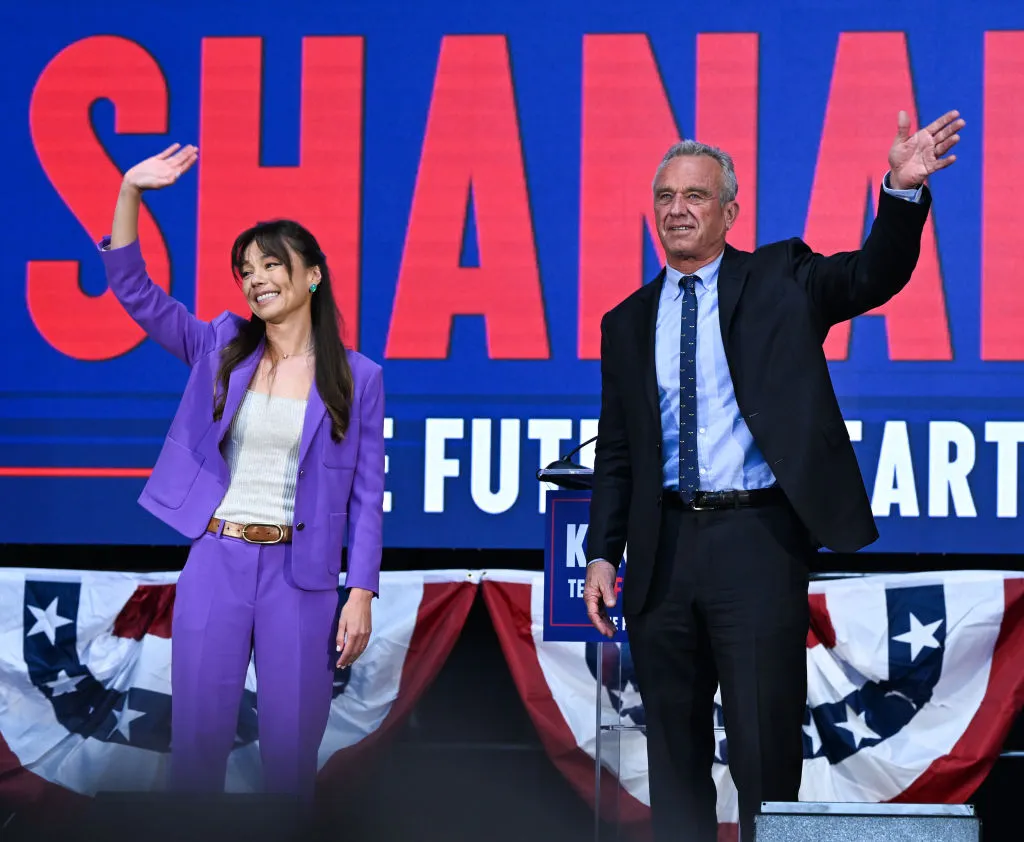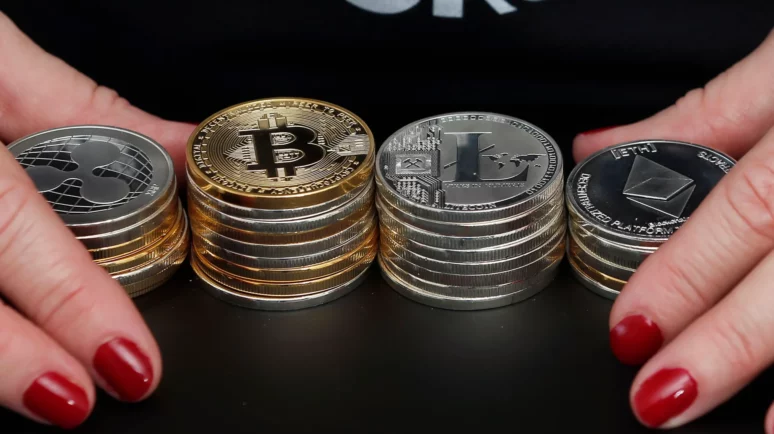Nicole Shanahan’s Political Aspirations Overshadowed by Elon Musk Romance Rumours

Nicole Shanahan's potential VP role with US candidate Robert Kennedy Jr. is overshadowed by headlines focusing on her personal life. l Source: Tayfun Coskun/Anadolu via Getty Images
Key Takeaways
- US candidate Robert F. Kennedy Jr. has named Nicole Shanahan as his co-runner.
- Media coverage of Shanahan’s political role emphasizes her personal life rather than her professional background and experience.
- Experts outline how people still consider the notion of leadership in itself as a male quality.
Nicole Shanahan, a prominent 38-year-old Californian lawyer and tech figure, has been named as the vice president on the ticket of longshot US presidential candidate Robert F. Kennedy Jr.
Initially reported as a vice president prospect by Mediaite, recent headlines regarding Kennedy Jr’s purported selection have predominantly highlighted Shanahan’s personal history , particularly her presumed past relationship with Elon Musk, rather than her extensive professional and political experience.
Who Is Nicole Shanahan?
An Oakland native, Shanahan hails from a background marked by adversity, with a father coping with bipolar disorder and schizophrenia, and a mother who immigrated to the US from China. Growing up, her family relied on welfare and faced financial hardship.
Before her association with Robert F. Kennedy Jr., Shanahan actively supported Democratic campaigns, contributing $25,000 to President Joe Biden’s joint fundraising committee in 2020. She has identified herself as a lifelong Democrat in various interviews. Shanahan made headlines with her $4 million donation to a pro-Kennedy super PAC, which funded an ad aired during the Super Bowl, featuring footage from the 1960 presidential campaign of Kennedy’s uncle, John F. Kennedy. However, the ad drew criticism from several Kennedy family members.
Shanahan’s personal life has also garnered attention, particularly due to her divorce from Google co-founder Sergey Brin and subsequent reports of an affair with Elon Musk, which she has denied. In an essay published in People magazine, Shanahan described the fallout from these reports as “a disaster,” impacting both her career and personal life.
Despite the controversies, Shanahan has remained active in philanthropy, donating millions to reproductive research and other causes. She has many achievements to her name, including founding and selling a startup, earning a fellowship at Stanford, and establishing a foundation. Much more than a presumed love affair with Elon Musk.
Why Do Women in Politics Face Gendered Scrutiny?
Gender stereotypes create obstacles for women experts, leading to less favorable evaluations than men. Role Congruency Theory suggests that in politics, traditional gender roles clash with expert authority, resulting in backlash.
Adam L Olzer, research associate at the Department of Political Science, Machine-Assisted Human Decision-Making Lab, at the University of Houston, thinks gender-stereotyped roles influence biases in evaluating news sources.
“Selection experiments reveal that women experts receive less recognition for their expertise and face harsher penalties for perceived lack of expertise, intensifying gender biases. This pattern persists across issues stereotypically associated with masculinity and femininity, including those disproportionately affecting women,” he wrote in a study .
However, partisan cues override gender influence. Women experts have a low representation in US political news media, with only 21% cited in political news. This challenge stems from skepticism towards expert women’s qualifications, leading to greater scrutiny and lower hiring rates than men.
Going for the “least worst” Stereotype
According to Stephanie Schnurr, an associate professor in the Centre for Applied Linguistics at the University of Warwick, gender stereotypes women politicians face represent a global problem .
These pervasive stereotypes persist globally, presenting a common challenge for women leaders. Despite their prevalence, women in leadership roles must navigate these labels and strive not to be constrained by them. Instead, they may seek ways to overcome these stereotypes and even leverage them to their advantage.
“Sometimes it is a case of going for the least worst,” says Schnurr. “Angela Merkel has found the mummy image a useful alternative strategy to invoke the theme of female strength and aggression. Being tough is more acceptable if it is used in defense of others. Former Polish Prime Minister Beata Szydło has contested the stereotype directly by making a conscious choice to put more feminized self-images into the media, for example, having a soft-focus photoshoot feeding cats on the porch of her house or distributing presents to orphaned children wearing a Christmas jumper. Teresa May chose to appear in American Vogue.
But therein lies the issue, said Schnurr. “Should they have to? It seems people still consider the notion of leadership in itself as a male quality. There is still this underlying assumption that leaders are by default male and hence women who want to take on leadership roles often have to justify themselves much more.”
“That is why women face stereotypes as a group – they continue to stand up against society’s long-held view of what men and women should be. Until this changes, these stereotypes will continue to rear their heads for women leaders worldwide.”


